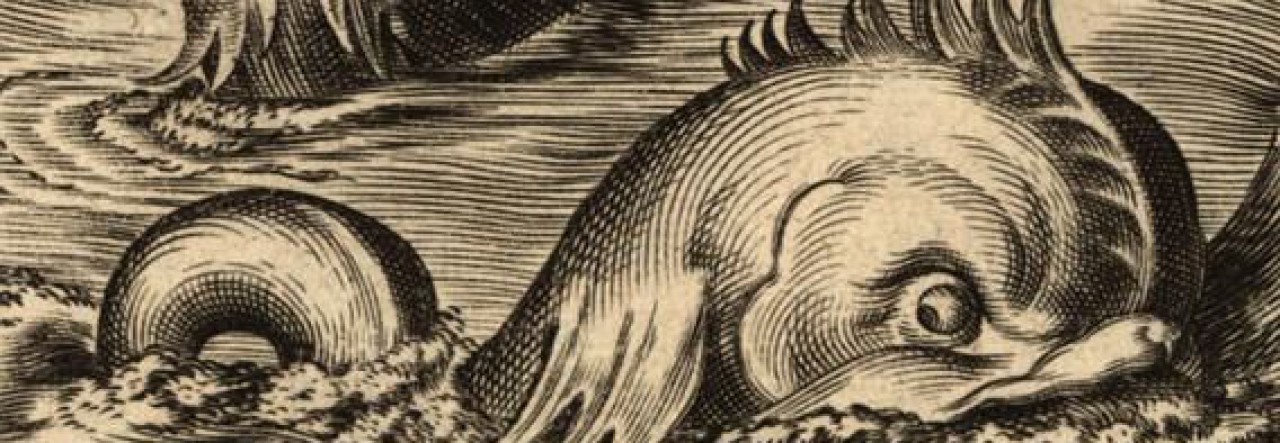 There were four of them. They emerged from the lantern-smoked alleyways of the nameless port town, building themselves from shadows and burnt rags. Seven feet tall, their thin bodies wrapped in fluttering black cloth, they listed back and forth as they walked, their bones creaking like the rigging of ships. Their faces were open mouths drifting among the tattered ribbons and the gloom. Teeth glinted in the firelight like hard flint.
There were four of them. They emerged from the lantern-smoked alleyways of the nameless port town, building themselves from shadows and burnt rags. Seven feet tall, their thin bodies wrapped in fluttering black cloth, they listed back and forth as they walked, their bones creaking like the rigging of ships. Their faces were open mouths drifting among the tattered ribbons and the gloom. Teeth glinted in the firelight like hard flint.
They stalked the narrow avenues of the town with measured deliberation, going unseen by most of the population, and sending those few that did see them shrieking and scattering like frightened gulls. Some of the more foolhardy among them turned and fired a few wild shots before running. The carrion angels were oblivious to all of it, their bodies accepting the violence they way a corpse accepts the worm. They swung their great heads toward each juncture of road and alley, lifting their snouts and huffing deep breaths as they tracked the scent.
They followed it to a darkened warehouse where they found the corpse of Thomas Thickett, the back of his head cratered and his brains splashed across the stacked crates and the packed earth. The stink of it made them drunk and they lost focus for a moment, hunched around this glorious fountain of scent, this unexpected confection. But they remembered their duty. Turning aside for the moment, they creaked slowly through the warehouse.
They knew almost immediately that the heads had been taken.
The trail resumed at the bay door, wending down toward the docks. But before they pursued it, they returned to the feast that had been left them. They surrounded the body of Thomas the Bloody and stooped to feed, lowering their heads into the bowl of his corpse. They ate with a grateful reverence, the sound of wet meat and cracking bone giving measure to an almost absolute darkness.
Outside, the town had erupted in a panic. Word of the carrion angels’ presence had spread fast and the narrow roads were choked with men fleeing for their ships. Pirates and sailors careened drunkenly, lurching, stumbling, trampling the fallen. Throughout the town panicked men shot and stabbed at shadows, and the road to the sea was marked by the bodies of the dead and the dying. Most of the women stayed inside, shuttering the windows and locking the doors; others, often the youngest and least experienced, followed the pirates to the docks, forgetting in the terror of the moment the temperament of these men, and remembering only when they were beaten back or shot as they tried to climb the gangplanks to safety.
The ships were alight with lanterns, riggings acrawl with sailors making ready for the sea. Boats were dropped from the sides and men were set to towing the vessels from the port. Gunsmoke hazed the air and the bloom of violence was a grace upon the town. They walked in their slow, swaying gait through it all, like four tall priests proceeding sedately through hell, confident in their faith.
The scent ended at the docks. The crate of heads had gone to sea.
It was a small thing to sneak passage aboard a ship. The carrion angels dissolved into rags and dust, blowing like so much garbage in the wind, carrying over the water and into the rat-thronged hold of one of the several pirate ships, settling amongst the refuse and lying as still as the dead.
The captain of this very ship, a hard old man called Bonny Andrew, who harbored a longstanding terror of these creatures yet misjudged their physical nature, waited until they had reached some distance from land and ordered his ship to turn about, offering its broadside to the town. At his command the ship fired its complement of guns in a poorly orchestrated yet devastating volley, sending cannonballs smashing through weak wooden walls and bringing whole buildings to the ground. Another ship took inspiration from this and fired as well.
Within moments the nameless port town and its luckless residents were reduced to broken wood, and smoke, and blood. The pirates, satisfied at their own efficiency, rounded out to sea, dark under a moonless night.
The carrion angels slept in the hold. The scent’s trail was a road, even over the sea. They were sure of their step.
(Art by Jeremy Duncan)










